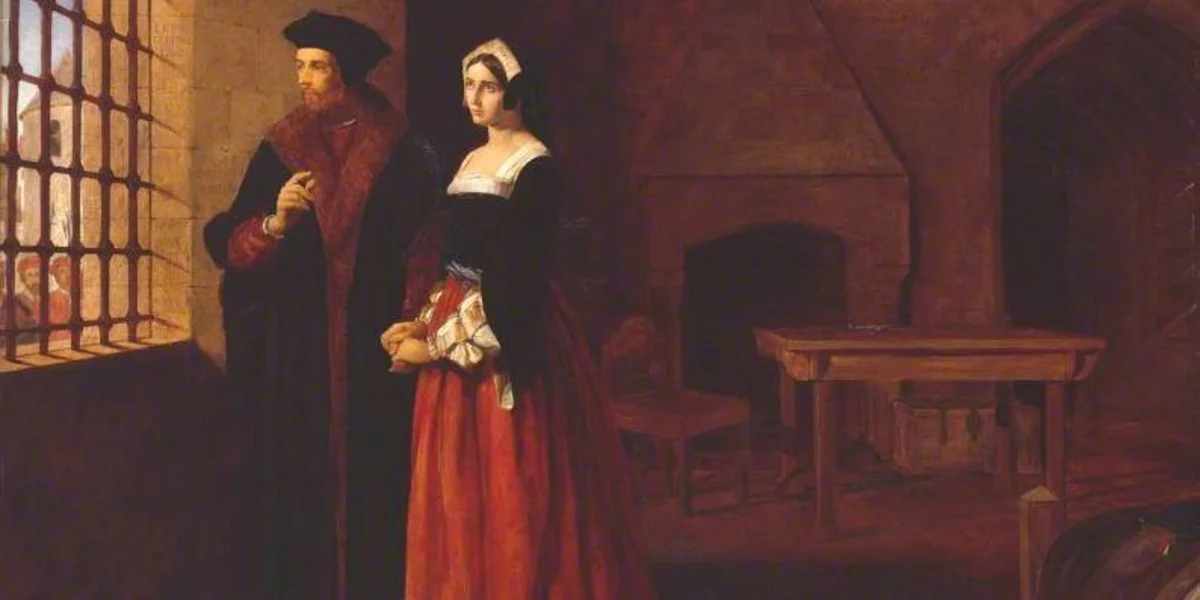Pope Leo XIV – Inaugural Mass Homily
Elected on May 8, 2025, as the 267th successor of St. Peter, Pope Leo XIV’...

This Letter was written by St. Thomas More to his daughter Margaret (Meg) from his cell in the Tower of London where he had been imprisoned by King Henry VIII. Soon after writing this Letter, Thomas was condemned to death on trumped up charges.
Although I know well, Margaret, that because of my past wickedness I deserve to be abandoned by God, I cannot but trust in his merciful goodness. His grace has strengthened me until now and made me content to lose goods, land, and life as well, rather than to swear against my conscience.
God’s grace has given the king a gracious frame of mind toward me, so that as yet he has taken from me nothing but my liberty. In doing this His Majesty has done me such great good with respect to spiritual profit that I trust that among all the great benefits he has heaped so abundantly upon me I count my imprisonment the very greatest. I cannot, therefore, mistrust the grace of God.
By the merits of his bitter passion joined to mine and far surpassing in merit for me all that I can suffer myself, his bounteous goodness shall release me from the pains of purgatory and shall increase my reward in heaven besides.
I will not mistrust him, Meg, though I shall feel myself weakening and on the verge of being overcome with fear. I shall remember how Saint Peter at a blast of wind began to sink because of his lack of faith, and I shall do as he did: call upon Christ and pray to him for help. And then I trust he shall place his holy hand on me and in the stormy seas hold me up from drowning.
And finally, Margaret, I know this well: that without my fault he will not let me be lost. I shall, therefore, with good hope commit myself wholly to him. And if he permits me to perish for my faults, then I shall serve as praise for his justice. But in good faith, Meg, I trust that his tender pity shall keep my poor soul safe and make me commend his mercy.
And, therefore, my own good daughter, do not let your mind be troubled over anything that shall happen to me in this world. Nothing can come but what God wills. And I am very sure that whatever that be, however bad it may seem, it shall indeed be the best.
Banner/featured image Sir Thomas More and His Daughter by John Rogers Herbert. Public domain.
Saint Thomas More was born in 1477 and was educated at Oxford. He married and had one son and three daughters. While Chancellor in the king’s Court, he wrote works on politics, culture, and in defense of the Catholic faith. At one time one of King Henry VIII’s most trusted ministers, More was beheaded on July 6, 1535 by order of the King whom he and St. John Fisher had resisted in the matter of the King’s divorce from Catherine of Aragon and remarriage to Ann Boleyn. His memorial occurs on June 22 together with that of St. John Fisher whose execution occurred on this date.
For more on St. Thomas More, see the apostolic letter by Pope John Paul II proclaiming him patron saint of statesmen.
Adrian Johnson
Posted at 05:32h, 23 JuneSt Thomas More had a touching memorial to his two wives put in the church where he worshiped in London. The stone plaque states diplomatically that it was impossible to say which one he loved more.
It is also recorded that this wonderful renaissance man sang hymns with gusto in church, –but that he had a terrible voice; he obviously had no vanity, and a great sense of humour.
Jim Quirk
Posted at 09:37h, 23 JuneA Man For all Seasons is a fabulous movie ? on the life of Saint Thomas More…
Jonathan hanna
Posted at 07:25h, 24 JuneA Man for All Seasons and Bolts ‘play are certainly good.